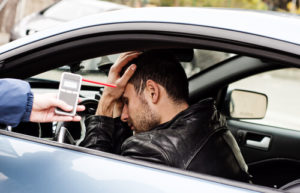Breathalyzer Tests in Baltimore

The breathalyzer has seemingly become ubiquitous in pop culture. The sight of someone blowing into a little device in order to determine if they are drunk is, at this point, pretty well-known.
But there are a lot of misconceptions about breathalyzers, what they do and their legal force. Our Baltimore DUI attorneys want you to know as much as possible about these tools so that you can make the smart decisions that protect your rights during a roadside stop.
If you need a criminal defense attorney with ample experience in DUI cases in Baltimore, please call Cohen & Dwin, P.A., today at 410-653-6000 for a consultation. We understand the importance of skilled legal representation at this difficult time in your life.
What You Need to Know About Breathalyzers
First, it’s important to understand what a Breathalyzer is and what it isn’t. The term “Breathalyzer” is actually a trademarked brand name for a specific company’s device. However, it’s become a generic term for any breath-based alcohol testing device. We’ll continue using it that way on this page.
Here’s another important thing to know: while a Breathalyzer is designed to provide a readout of your blood-alcohol content (BAC), it does not directly measure BAC. It can’t – an accurate measurement of BAC requires a blood test.
In the state of Maryland, drivers over the age of 21 are said to be legally impaired if their BACs are over .08.
Instead, a Breathalyzer estimates your BAC by measuring the amount of alcohol on your breath. These estimates are considered broadly reliable, but they are not perfect, and for that reason they have limited admissibility in a criminal case. If you are arrested for DWI, you will likely be asked to submit to a more scientific and reliable blood or urine test while at the police station.
Breathalyzer Laws in Maryland
Maryland is an implied consent state. This means that by acquiring a Maryland driver’s license and legally operating a vehicle on public roads that you have given your consent for chemical testing if a police officer has reasonable cause to believe you were driving while impaired.
This does not mean that a police officer can force you to take a roadside sobriety test. You have the right to refuse a breathalyzer test if you wish. But if you do, the police officer will confiscate your license. He or she will give you a temporary license, but once the Maryland Vehicle Administration receives the officer’s report, your license will be suspended for 120 days (provided this is the first offense).
The officer should inform you of all of this when he asks to administer the test. He or she should also tell you that you have a right to request a hearing within 10 days to challenge the suspension of your sentence. However, you can’t always rely on being told this information, so it’s important that you know it yourself.
Because the penalties for a DUI conviction are more severe than the penalties for refusing to take a breathalyzer, many people assume they should simply refuse to take the test. However, it’s important to remember that refusing to take a test does not mean you won’t be arrested and – eventually – convicted of DUI. You can be arrested even without a breathalyzer test showing a BAC of .08 – police officers are allowed to make DUI arrests based on observational factors.
Our Baltimore criminal defense attorneys understand the scientific and legal issues associated with breathalyzers. In the state of Maryland, you have the right to have an attorney present while you take a chemical test for BAC level.
We urge you to call us as soon as possible if you’ve been arrested on a DUI charge – you are not doomed simply because you blew over .08 on a Breathalyzer. Our attorneys will investigate your arrest to determine if all protocols were followed and if your rights were respected.
If you need an experienced DUI attorney in Baltimore, please call Cohen & Dwin, P.A., today at 410-653-6000 for a consultation.
